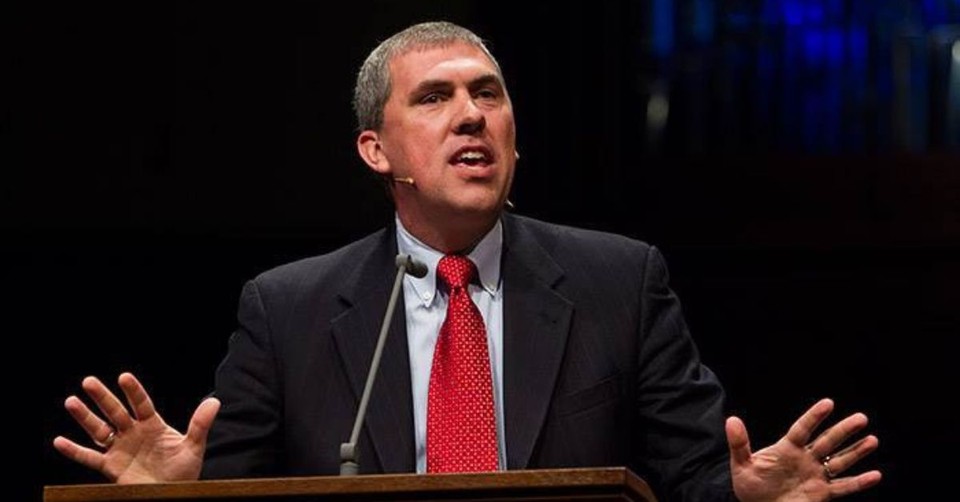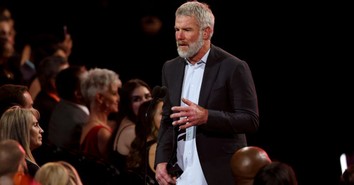Former SBC President Reflects on Jimmy Carter’s Complex Legacy of Faith

A former Southern Baptist Convention leader believes today's Christians can draw valuable lessons -- both positive and negative -- from the faith of Jimmy Carter.
Bart Barber, the pastor of First Baptist Church in Farmersville, Texas, and the immediate past president of the SBC says as much in a new column for The Baptist Review, where he applauds Carter's devotion to church and humanitarian relief while questioning some of Carter's theological beliefs.
Carter, who served as U.S. president from 1977 to 1980, died Dec. 29 at the age of 100. He was the oldest ex-president or current president in the nation's history.
"We need to learn a lot from the good things Jimmy Carter did. His faithfulness to his church, his faithfulness to his wife, his steadfast charitable voluntarism, his yearning for peace for people who are trapped in zones of combat -- these things are waning in our culture, and they need to be reinforced. I hope that the occasion of his death will be a time when people champion these virtues," Barber wrote.
"We also need to learn from Carter's mistakes," he added. "In those places where President Carter got it wrong, he made substantial use of what I long ago named 'The Hoover Hermeneutic.' You can get away with almost anything while still claiming to believe that the Bible is absolutely true if you just keep alleging that the Bible is rarely absolutely clear. Carter did this a lot."
Carter's devotion to his faith, Barber said, deserves recognition.
"Carter was more committed to his faith than Reagan, either Bush, Clinton, Obama, or Trump," Barber wrote.
In fact, some Americans considered Carter to be "too Christian."
"He was the first president to call himself a 'born-again Christian.' He nearly scuttled his winning 1976 electoral campaign when he admitted in an interview with Playboy magazine that he had 'committed adultery many times in [his] heart' because he had 'looked on many women with lust.' Quoting and applying the Sermon on the Mount nearly did in the Carter presidency before it started," Barber wrote. "The late-night talk shows ridiculed Carter for uttering these lines, portraying him as a lustful man. Ironically, he had been answering a question from Playboy about whether he was so pious, self-controlled, and circumspect that he would be some sort of inflexible theocrat if he were to occupy the Oval Office. Whether they used it to portray him as a prude, a would-be philanderer, or a backcountry buffoon, many people in the country were uncomfortable with Jimmy Carter's overt religiosity."
While in the White House, Carter's faith "remained an integral part of his life," Barber wrote.
"He immediately joined the First Baptist Church of Washington, DC. He attended church there more than 70 times during his term in office. That's a remarkable track record of church attendance for a sitting president."
Carter's church attendance "picked up after he left office."
"He and Rosalynn worked hard as volunteers for Habitat for Humanity," Barber wrote. "He received less attention for his efforts to eradicate Guinea worm disease, which painfully afflicts people in some of the poorest countries of Sub-Saharan Africa. Jimmy Carter tied all of these initiatives to the outworking of his faith in Jesus.
"You know what: I think it was sincere. I think Jimmy Carter really was born again," Barber wrote. "I hope to see him in Heaven. In his personal behavior, he demonstrated the walk of a Christian better than we have come to expect from our political leaders."
Even so, Carter's beliefs were not without flaws, Barber said.
"Jimmy Carter believed that people could be saved apart from trusting in Jesus Christ for salvation," Barber wrote. "He tended to hedge his statements along these lines quite a bit. Rather than just asserting that people are saved apart from the gospel, Carter tended to say that (1) there's wiggle-room in what the Bible says, (2) Carter preferred not to be judgmental, and so (3) he chose to believe that people could be saved even if they rejected the gospel. He was wrong on his first point, which made him wrong in his conclusion."
On abortion, Carter tried, unsuccessfully, to find a middle path, Barber wrote.
"Carter said that he personally considered abortion to be wrong," he wrote. "He also said that he did not think Jesus would approve of abortion. He opposed federal funding for abortion. But he supported the legal regime of Roe v Wade, which made abortion legal at every stage of pregnancy. This approach to abortion is incomprehensible, which is why it has died out. The person in the womb either is or is not a person in the womb. If there is not a person in the womb, why is abortion wrong? Why shouldn't the government fund it? If there is a person in the womb, what reason other than barbarism could we find for failing to protect that person's life? Carter's position was always a halfway-house to the 'Shout Your Abortion' position of the Democratic Party today, but for Carter himself it seemed to be his sincere conviction. If he ever gave evidence that his position had changed, I was unaware of it."
Carter also drifted left on LGBT issues.
"His was the first administration to welcome gay-rights activists to the White House," Barber wrote. "He claimed (falsely) that Jesus never said anything about gay marriage. He first came out in support of same-sex civil unions; then he came out in support of full-fledged gay marriage. After the 2015 Obergefell ruling, Carter espoused a thoroughly non-Christian sexual ethic: 'I think Jesus would encourage any love affair if it was honest and sincere and was not damaging to anyone else.' This approach would open the door to condone adultery (if kept a secret or condoned by the other spouse), polyamory, and whole host of other forms of debauchery."
Carter's positions on social issues may have been driven by politics, Barber wrote.
"I think that part of what motivated Jimmy Carter to minimize the clarity of the Bible on key issues and part of what motivated Jimmy Carter to shrink back from trying to apply the moral teachings of his faith to others was simply this: his political supporters and his political party were moving away from the Christian faith in those areas, and Carter wanted to be able to retain their affiliation and support," Barber wrote. "It is at precisely this point that we Baptists need to show the Anabaptist project a little more respect. …How much can Christians give themselves to politics without giving themselves away to politics? How hard is it for a Christian to embrace government as a calling without embracing it as their first and highest calling?"
Both sides of the ideological aisle, Barber said, can learn from Carter.
"Maybe what we ought to learn from Jimmy Carter is that he actually was a Christian, and a good one at that, but that the arena of national politics is a place where even good Christians are hard-pressed to remain true to their faith," Barber wrote. "His areas of compromise are not really puzzling. The politics explains them. This kind of analysis is perhaps the least likely to take place, because that kind of question exonerates none of us. But it is the most needed for precisely the same reason."
Photo Credit: ©Facebook/Bart Barber
Michael Foust has covered the intersection of faith and news for 20 years. His stories have appeared in Baptist Press, Christianity Today, The Christian Post, the Leaf-Chronicle, the Toronto Star and the Knoxville News-Sentinel.
Listen to Michael's Podcast! He is the host of Crosswalk Talk, a podcast where he talks with Christian movie stars, musicians, directors, and more. Hear how famous Christian figures keep their faith a priority in Hollywood and discover the best Christian movies, books, television, and other entertainment. You can find Crosswalk Talk on LifeAudio.com, or subscribe on Apple or Spotify so you never miss an interview that will be sure to encourage your faith.
Originally published December 31, 2024.







